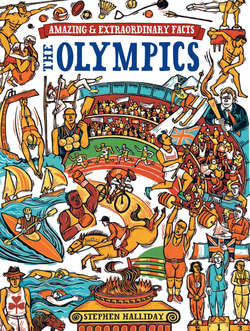Читать книгу The Olympics - Stephen Halliday - Страница 12
На сайте Литреса книга снята с продажи.
A CLASSICAL EDUCATION
ОглавлениеThe values of classical civilization were deeply ingrained in English society in the 19th century, not just in the public schools and universities. The Great Exhibition of 1851 in the Crystal Palace included pictures of ‘Victor entering the temple of Zeus’ and ‘Start of the Running Race’. The Spectator wrote of the exhibition as ‘This Olympic Games of Industry’ and early football leagues were given Greek names like the Athenian, Corinthian and Isthmian leagues. The Corinthian Casuals football team was so devoted to the supposed Greek virtue of the gentleman amateur that their players refused to take penalties.
Dr Arnold didn’t mention sport in his writings. A historian of the school later wrote that Arnold’s interest in sport was confined to the fact that ‘he sometimes stood on the touchline and looked pleased.’ Despite his misconceptions about Thomas Arnold and the contributions of others to the Olympic movement, Pierre de Coubertin is rightly regarded as the moving spirit behind the revival of the games. He died in September 1937 while walking across a Lausanne park close to his home, rather hard up and resentful at what he regarded as the lack of recognition he had received in his native France. Following his death his heart was buried at Olympia on 26 March 1938 in the presence of Crown Prince Paul of Greece. He is commemorated by many statues including one at the headquarters of the IOC in Lausanne, Switzerland, and in 1976 he had a distant planet named after him by a Russian astronomer.
